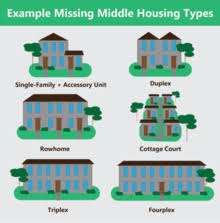Before investing in rental properties, it’s important to understand what, where, and how to buy so that you have a solid strategy in place as you browse around. That’s why we’re explaining the basics of how to make money from renting property.
Location Matters

There is a strong correlation between where your rental property is located and your financial success. The location is critical to determine what your ROI will be as well as the value of your investment dollar. As you gain experience, you will make location strategy the main driving force for your purchases. To succeed, you need to do your homework diligently by considering both the pros and cons of the proposed deal.
Avoid investing blindly in areas that you know nothing about. Never consider unknown locations unless you have great contacts, such as exemplary property managers, legal professionals, suppliers, and contractors. One experience with a negative outcome and a hefty legal bill can forever dampen your enthusiasm for real estate investing. It is, therefore, best to have a solid property in or near your community.
Negotiating 101
If you are a savvy rental property investor, you can make a lot of money just by purchasing property in a well-located area. If you are buying at below-market value, you can have excellent returns for many years down the road. Smart negotiating is, therefore, an important criterion to be successful in rental investing. The issue with aggressive negotiation, however, is that you may end up buying properties that you should have completely avoided during the pre-offer due diligence. If you are emotionally involved with a property, you are likely to make mistakes such as this.
Additionally, playing hard to get can be another way to find and receive a good deal. If you’re giving out information about your motivation for purchase, you’re indirectly giving the seller negotiating leverage. The less you talk about your interest in the property, the better. Many sellers will stick to their asking price terms if they find out that the buyer is in tight time restrictions due to a tax-deferred exchange. Similarly, it’s important to factor in fix-up costs or rental move-in costs while negotiating the price for your potential purchase. Every rental property comes with deferred maintenance, so you will have to call a home inspector to determine the property condition. Look for situations where you can rent for what the property is actually worth rather than what the seller expects.
Landlording 101

To maximize your rental investment, you must decide who will manage your property, determine rental policies, attract tenants, work with existing tenants, stay on top of local regulations, and keep an eye on accounting and recording. A property management company comes in handy; they do all the work for you: cleaning, making repairs, advertising, selecting tenants, collecting rents, showing rental units, and more.
Property management is truly a round-the-clock commitment. Therefore, if you earn your living by doing work other than rental management, have multiple properties, or simply don’t have the bandwidth, managing the property by yourself may not be worth the time you spend on it. Besides, your tenants and rental prospects expect an immediate response for even routine inquiries, and this is impossible if you are on vacation or traveling overseas. On the other hand, when you are delegating this task, you don’t have to deal with tenants’ problems, replace contractors if necessary, or interact with local government. The income loss that may occur due to learning from your own mistakes can be huge as well.
Tax Considerations
The tax laws surrounding rental properties are far more complex than those related to homeownership. A rental property investor will be able to deduct the cost of operating, maintaining, and repairing the rental property during tax filing. Additionally, the benefits of depreciation apply to rental real estate: You can claim a deduction for a portion of the purchase value of the property since it will be gradually wearing out. This means you can decrease your taxable income while sheltering cash flow from taxation.
Capital gains are generated when you sell rental properties for a profit. The money you make by selling is subject to capital gain tax. For short-term investments, property held for less than a year, capital gains are taxed at the same rate as ordinary income. For longer-term investments, those rentals that are held for more than a year, rates of 0%, 15%, or 25% will apply, depending on your income bracket. Spending at least 250 hours on certain activities related to your real estate rental investment will entitle you to additional tax breaks as well.
Professional Strategies
All rental real estate activities are treated as passive income unless the investor is classified as a real estate professional. To become a professional, you must perform more than half your personal services in rental real estate activities, including buying rental properties, operating, leasing, construction, and/or brokerage. Doing this makes you an active investor, and you will be able to claim all your losses related to real estate as deductions in the same year that they incurred.
Being a professional or active real estate investor means doing your homework, buying the right property at the price you think is right, and adding value to it by improving and maintaining it as needed. Again, you don’t want to undo all the good work when you are selling the investment. This means not failing to explore the different ways to defer capital gains, take advantage of tax concessions, and make other informed choices.
Increasing Cash Flow

Investing in a rental property should be geared toward cash flow, property appreciation, tax benefits, or a combination of these elements. A successful rental investor will be able to improve their ROI in each of the above elements. For example, a rent increase will lead to greater cash flow. Reducing tenant turnover is another way to minimize loss from repairs, maintenance, and fees and maximize profit. Tenant turnover is not only bad for your bottom line, but you will be hit with expenses even after the move-out process has been completed.
Likewise, improving the curb appeal of your property is critical to your overall success as a rental property investor. If your property stands out compared to other open rentals, your property will stay occupied for a long time at top market rates. See whether there is room to cut back on operating expenses as well. The local utility company may be willing to perform an energy audit to reduce expenses related to your energy bill. Some even offer credit for reduced usage, track down leaks, and repair issues at no cost.
Wrapping Up
For many investors, rental real estate is one of the biggest financial commitments of their life. The proper coverage from insurance can protect such investments from the many dangers, including tenant lawsuits, fire, vandalism, and storms. After all, owning a rental property is only beneficial if you can minimize your risks in the real estate market. For more information on how to make money renting property and rental property management services, contact Evergreen Investments.




0 Comments